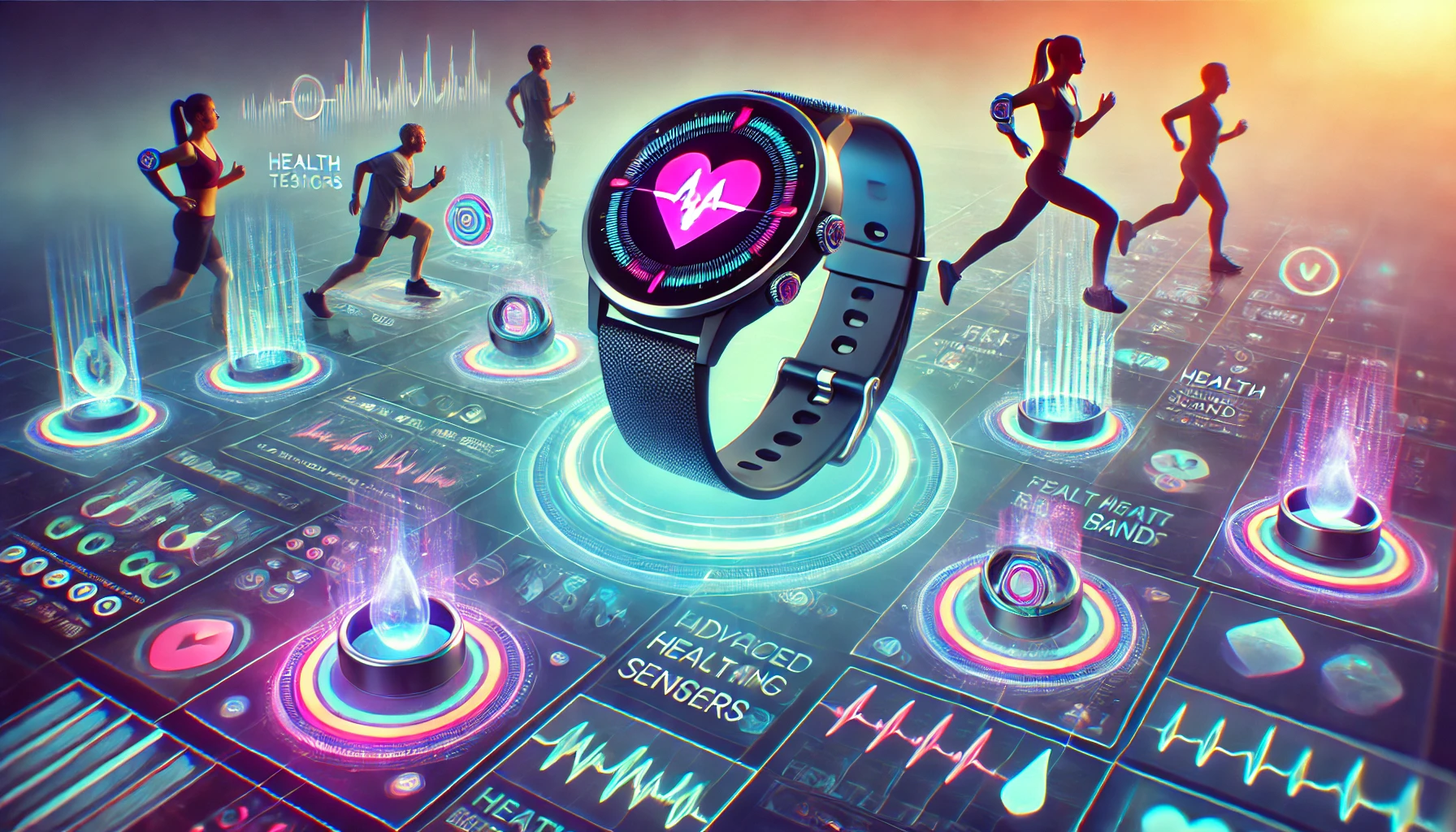Biometric Sensors: A Wearable Future for Health Monitoring
A new era of individualized health monitoring has emerged as a result of the convergence of technology and healthcare. Biometric sensors, wearable technology that can monitor a variety of vital signs and other health parameters, are at the vanguard of this change. These cutting-edge tools have the power to revolutionize our knowledge of and approach to managing our health.
Biometric Sensor Development
The idea of employing technology to keep an eye on health has been around for centuries. However, the invention of blood pressure monitors and electrocardiograms (ECGs) in the early 20th century marked the beginning of the contemporary era of biometric sensors. These early gadgets needed clinical settings and were heavy.
The real breakthrough came with the advent of wearable technology in the 21st century. Advancements in miniaturization, sensor technology, and wireless communication enabled the development of compact, user-friendly devices that could be worn on the wrist or other body parts.
The Operation of Biometric Sensors
A range of technologies are used by biometric sensors to measure different aspects of health. Among the most popular methods are:
• Optical Sensors: These sensors assess skin temperature, blood oxygen levels, and heart rate using light.
• Electrodermal Activity (EDA) Sensors: EDA sensors gauge the skin’s electrical conductivity, offering information on emotional arousal, stress, and anxiety.
• Gyroscopes and accelerometers: These sensors measure motion and can be used to calculate sleep patterns, steps, and calories burned.
The Effect on Human Life
The way we think about health and wellness is being completely transformed by biometric sensors. These gadgets enable people to take charge of their health by giving them constant, real-time vital sign data. Among the main advantages are:
• Early Disease Detection: Biometric sensors can assist in the early detection of possible health problems by monitoring patterns in blood pressure, heart rate, and other parameters.
• Better Fitness Tracking: By offering precise information on exercise duration, intensity, and caloric expenditure, these gadgets can assist people in making the most of their workouts.
• Stress Management: Users can employ techniques to lessen stress and enhance general well-being by keeping an eye on their stress levels.
• Remote Health Monitoring: Patients with chronic diseases can be monitored remotely thanks to biometric sensors, which eliminates the need for frequent hospital stays.
Possible Difficulties and Restrictions
Although biometric sensors provide many benefits, it’s crucial to understand their drawbacks. Among the possible difficulties are: • Accuracy and Reliability: Depending on variables including skin tone, hair growth, and sensor location, these devices’ accuracy may differ.
• Data Security and Privacy: Since these devices gather private health data, there are worries regarding data security and privacy.
• User Compliance: Some users may find it difficult to follow regular wear and charging schedules.
Biometric Sensors’ Future
Biometric sensors have a bright future. We can anticipate seeing increasingly more advanced gadgets that can monitor a greater variety of health indicators as technology develops. Among the possible advancements in the future are:
• Non-Invasive Glucose Monitoring: Tools that measure blood sugar levels continually without requiring finger pricks.
• Brainwave Monitoring: Wearable technology that measures brain activity to evaluate mental and cognitive wellness.
• Advanced Sleep Tracking: Tools that offer comprehensive information on the stages of sleep, sleep disorders, and the best ways to sleep.
An Example: The Rise of Smartwatches
With a variety of biometric sensor features, smartwatches have proliferated. These gadgets can monitor blood oxygen levels, heart rate, sleep habits, and even detect abnormal heartbeats. People can obtain important insights on their general health and well-being by utilizing these characteristics.
Biometric sensors have the potential to revolutionize healthcare and enable people to live healthier, more satisfying lives as they develop further.

Leave a Reply